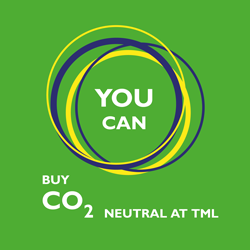CO2 Neutral
Since transport represents almost a quarter of greenhouse gas emissions in Europe, we are aware as a transport and logistics service provider that it is our duty to make a change and to focus on the reduction in the carbon footprint generated by our activities. With our initiatives to become climate-neutral, we want to do our part. By 2035 we want to have achieved a reduction of 90% in greenhouse gas emissions. This goal can be achieved by, initiatives that greatly reduce CO2 emissions from our transportation activities as well as initiatives that offset the remaining CO2 emissions. In this way, we also want to help our customers achieve their climate-related goals.
Read our Sustainability Report 2023-2024 below to see what was already achieved and which initiatives are planned for the near future.
Contact us to discuss a sustainable approach to your supply chain.
https://www.yumpu.com/en/document/view/69436912/sustainability-report-2023-2024
4 723 808 kg
= the total amount of CO2 in kg that is compensated by using HVO, our commitment of building our intermodal network, investing in solar energy and reforestation
This is equivalent to:
How do we tackle the reduction of CO2 emissions?
HVO (Hydrotreated Vegetable Oil) is a renewable diesel alternative derived from grease water, vegetable oils, or residues from e.g. agriculture and food industry. The fuel gives extra power to the engine and provides cleaner and more efficient combustion, which reduces soot in exhaust systems and engines. It can be used in regular diesel engines, which means that no truck modification was needed. With HVO, a reduction of greenhouse gas emissions by 90% compared to conventional crude oil-based diesel is possible. The goal by 2035 is to reduce our ecological footprint by 50% for city distribution. Unfortunately, this fuel type is not available yet at ‘ordinary’ gas stations.
Intermodal network: our focus is to build our intermodal network in order to provide alternative, environmental-friendly solutions to our clients. The aim is to shift more and more goods from road to rail and to rely more on short sea shipping. Rail transport and short sea shipping offer a cleaner long-distance alternative for the traditional bulk cargoes. Furthermore, it offers several advantages such as reliability, cost-effectiveness, and efficiency.
The expansion of our fleet with electric trucks will help us significantly lower our carbon emissions and reach our climate goals. These are zero-emission vehicles, which lower our climate footprint drastically. Tailormade Logistics was one of the pioneers in Belgium with 2 electric vehicles in its fleet since 2023. In 2025, 15 additional trucks has entered the company. Furthermore, we want to take our responsibility in noise pollution, which has become a major concern, especially in urban areas. These trucks are a much quieter alternative for diesel trucks. Electric trucks produce significantly less noise-related pollution and lower noise levels.
What do we mean by climate neutral?
At Tailormade Logistics we always think in the long term. Hereby, sustainability is a term we hold in high regard. Climate change is one of the most important issues at the moment, which can only be tackled if everyone does their part. We believe that therefore we need to transform to carbon neutral ways of working. We did this in three steps: calculating the CO2 footprint of our company and its services, setting up initiatives to reduce CO2 emissions, and compensating the remaining CO2.
